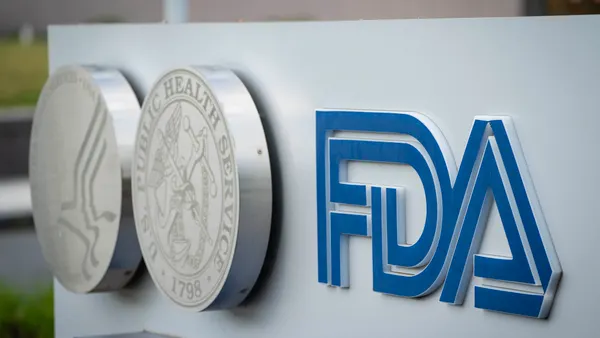Dive Brief:
- Rocket Pharmaceuticals plans to restart a Phase 2 gene therapy trial for a rare heart disease after working with the Food and Drug Administration to resolve questions around a study participant’s death earlier this year.
- The FDA ordered a hold on the research in May after the patient suffered from capillary leak syndrome, a condition characterized by plasma and protein seeping from blood vessels into surrounding tissue. At the time, Rocket zeroed in on a new medicine it had added into the pre-treatment regimen as a possible cause of the deadly complication.
- Rocket said Wednesday that the FDA lifted its hold and allowed the study to proceed with a lower dose of the company’s RP-A501 gene therapy and the discontinuation of the added medicine, called a C3 complement inhibitor. Rocket shares jumped by as much as 40% in early trading Wednesday before falling back.
Dive Insight:
The end of the clinical hold is good news for the company. But Rocket still has a long way to go to win approval of what could be the first gene therapy for a cardiovascular condition. Analysts said they will be particularly focused on the efficacy of the lower dose, the impact of the new pre-treatment regimen and whether the FDA will demand any more changes to the study as it progresses.
Rocket was one of the industry’s highest-profile companies four years ago; its shares traded above $64 and its market value topped that of then more well-established competitors, including Bluebird bio and Sangamo Therapeutics. But an unexpected clinical hold in 2021 — due to FDA demands for “additional risk mitigation methods” — and the patient’s death this year caused Rocket shares to crater.
The end of the latest clinical hold is a “meaningful positive for the stock,” Leerink Partners analyst Mani Foroohar wrote in a note to clients Wednesday. The Phase 1 data suggest that a lower dose could be effective enough to win approval to treat Danon disease and puts the heart condition “back on the table as a central pillar of the story,” with a possible launch in 2029, he wrote.
Currently, the only available treatment for Danon disease is a heart transplant. The condition affects between 15,000 and 30,000 patients in the U.S. and Europe, Rocket said.
Rocket highlighted the fact that the FDA’s clinical hold was resolved in less than three months. That could be a good sign that the head of the agency’s biologics division, Vinay Prasad, is fostering a “collaborative and understanding” unit, Jefferies analyst Andrew Tsai wrote in a note to clients.













